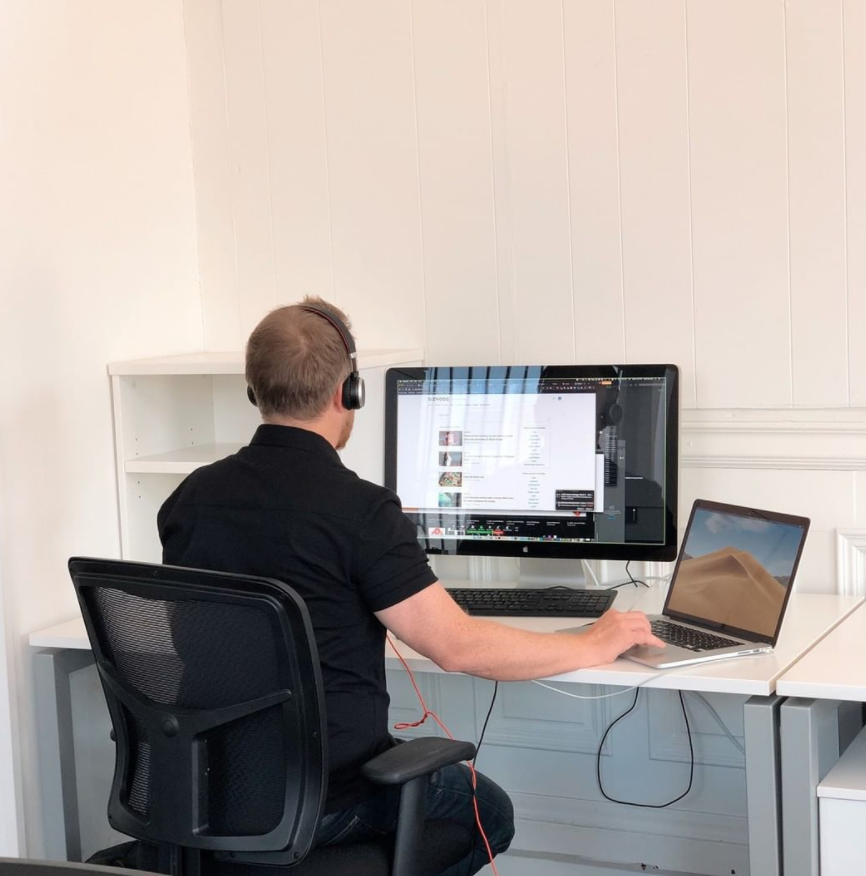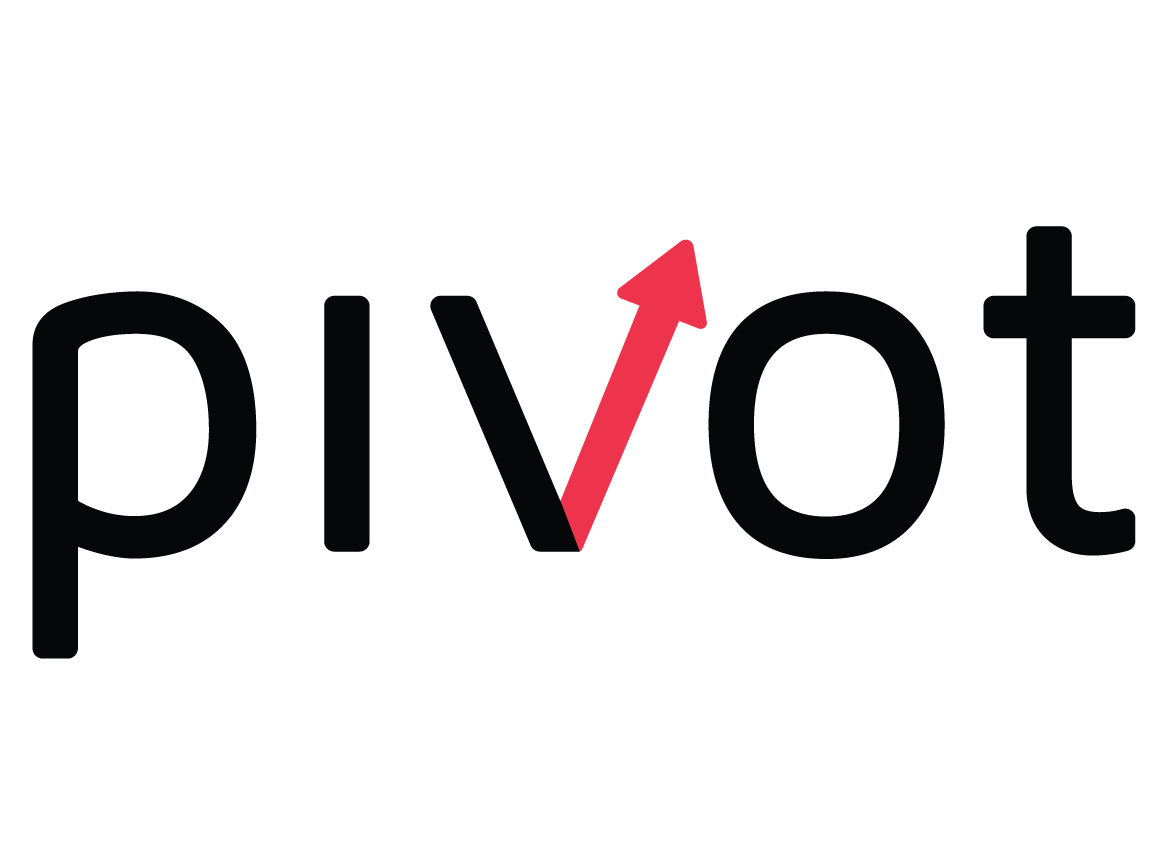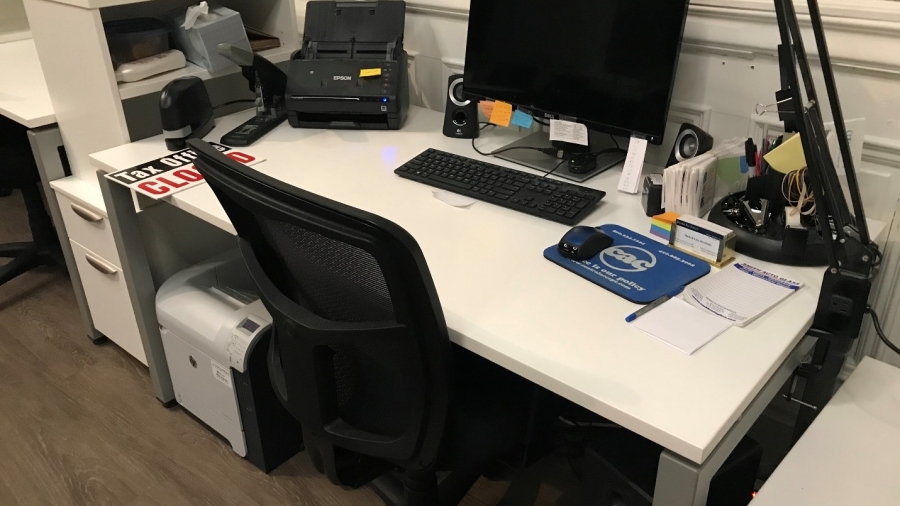No matter what your profession or job title, everyone can benefit from working more efficiently & productively. Really though, these two feed off each other and are really one in the same. To work efficiently is to work productively, and to work productively is to work efficiently. There are so many benefits both to our work & life of working productively; But some include reducing stress, saving time and ultimately making all of us even better at what we do!
We have decided to put together several tips that may help you to work more productively. So here it goes:
1. Pay Attention to the Details
This is one of the most important tips on the list, which is why we listed it first! Without this tip, all the other tips & suggestions will not matter, because for them to be effective, you must pay attention to every detail, all the time.
With our minds constantly pulled in 100’s of directions, it seems to be getting harder and harder to pay attention to the details in our work & lives. By definition, Detail means: extended treatment of or attention to particular items. Paying attention to detail requires having to spend a few extra seconds or minutes on almost every step of every project.
Doing things like reading documents twice, filing papers/files away as soon as being done with them, keeping desk drawers organized by writing utensil type and more are examples of paying attention to detail that can make a big difference in the long run. You may ask ‘How the heck can organizing my pens make me more productive?’ Well, as you begin to see the positive results of minding the details in everything you do, you will begin to naturally make the details a priority in everything. When you make the details a priority, you save time, thereby increasing your efficiency.

Here is an example:
One time at my office, we had a company call with a question about an invoice. As I went to get the invoice from the file cabinet, I realized it wasn’t there. I spent the next 20+ minutes searching for the file before bringing in another staff member who realized he had filed it in the wrong folder. Not paying attention to the details due to rushing when he originally filed the invoice caused us to waste so much more time then if he had been paying attention to detail when he first filed it.
Paying attention to the details helps to avoid errors such as scheduling a meeting at the wrong time or filing a document in the wrong folder, missing an important piece of information on a letter and so much more; All of which waste untold sums of time & money.
Do you best to slow your mind down enough to look at each and every step of each and every project/task as it’s own important step that must be treated with care and review! Over time, you want to have to try so hard and make such a concerted effort as it will begin to happen naturally!
Some other examples of paying attention to detail are:
– Verifying dates for meetings/appointments
– Filling in all the informational sections in Google Calendar when adding an event (Time, address, anything you need to take with you, brief description of event)
– Re-reading emails and letters for accuracy and punctuation
– Documenting all steps that are taken and their outcome for a task/project you are working on (Keeping these in the folder for that project, see Tip #2)
– Creating an itinerary or summary for meetings to assure you don’t miss anything
2. Create a File System & Use It
As you may be able to tell by now, I like thinking and making decisions based on what I know and what I learn about human behavior/psychology. That is why many of the tips and tricks that I mention are based around the ‘subconscious’ brain, as this is where many of our thoughts start and manifest!
I grew up in the age of true ‘paper’ work, manilla folders, and label makers. Because of that, I may be a bit biased on this tip, but starting & using a filing system no matter how primitive it is, can be a huge step to increased productivity.
With that said, a physical filing system is another trick I have seen (and used myself, as with all these tips) to ease the subconscious brain into feeling a sense of clarity & organization. Being able to visually see all of your paperwork, documents, and files neatly organized and prepared can do wonders for convincing our brain is everything is orderly, in-line and organized.
– – – – – – – – – – – – – –
Now, for some of the more immediate and measurable effects of a good physical filing system:
One of the obvious benefits is having a physical back up of documents & other important information in case something happens to the files saved online, the computer or server.
By keeping a physical filing system, as well as a digital system, it allows us to monitor the details (See #1) and assure the accuracy of all documents & files. Because everything is being filed away in two places, digitally and in a physical file, it gives an opportunity to ‘reconcile’, or verify the accuracy and information on everything. Many people I speak to say that it is much easier for them to read and process information when they have a physical copy in front of them, so by having to file away a piece of paper, this gives you an opportunity to look at the information separate from on a computer screen and to potentially notice something that you missed before!
Some other filing tips/example include:
– Create a Hanging File Folder for all main filing categories (IE Finance, Marketing, Operations)
– Within each Hanging File Folder, keep individual manilla folders for each vendor, project or informational category (IE in the Finance Folder would be: Bank Statements, Deposit Slips, Etc.)
– Use ‘Filing Tabs’ to label each set of paper or documents that you file away in a manilla folder (See example below)
– Keep a File Cabinet Drawer for all current year documents and those in which time plays no role in their relevance (IE Marketing Plan, Operational procedures, etc are all relevant regardless of how much time goes by. Things like invoices and orders that have been places can be moved at the end of the calendar year)
3. Organize your Workspace
Whether working from home or in an office, productivity starts with the space in which we work. Start with making sure that every morning you start work with a completely cleared and organized desk. A large part of our ability to focus is based on the physical environment in which we work. Having a cluttered desk with papers and office supplies all over does not help our brain or our subconscious to get that feeling of organization and clarity, and often adds a sense of frustration or chaos to our time working. Therefore people will sometimes say ‘I don’t even know where to start!’

Dedicated Desk at PIVOT Work Spaces in Catonsville
Notice that we mentioned making sure your desk is organized BEFORE you start work in the morning. It is important to assure this is done the night before (if possible), as the significance of this tip really lies in walking into or starting the day with a clean and organized workspace every morning, and the effect, both consciously and subconsciously, that this has on our brain. I relate it to the feeling we get when walking into the bedroom after a long day and seeing a nice clean room with a well-made bed. It gives us a sense of peace and calm that allows the rest of our night (ideally) to maintain that say feel and vibe. I think we can all agree it is not as relaxing to walk into your bedroom with pillows slew on the floor and things all over the place!
See, being simple humans, our brains find it difficult to complete more than one task at a time. Therefore, we so often hear the phrase ‘I’m not good at multi-tasking’. When we have unfiled paperwork, unopened mail & other unreconciled tasks, whether we know it or not, our brain is spending some amount of mental energy trying, where happening subconsciously or not, to organize and reconcile those tasks so that it (the brain) can build whatever you are working on now or next into the current picture it has of your tasks and work plan. Our brain, and more precisely our consciousness naturally operates in a very orderly fashion; The brain likes order and efficiency, and it likes it to be this way all the time. By keeping all our ‘administrative duties’ in constant up-keep, we are allowing the brain and subconscious to spend 100% of its power on our current task at hand, not wondering or feeling like there is something else that needs to be done!
Try saving 10-15 minutes at the end of each day to file papers, send documents, or whatever is needed to assure everything is in order and set for a fresh start in the morning. Make sure all your pens, highlighters and other office supplies are neatly stored away and that the only thing on your desk is what you will need for your work the next day!
4. Plan Your Work/Day
Planning is a huge part of being productive. Some people like to plan details of events or projects out more than others (some plan each day down to the hour and minute). Regardless of how much you like to plan things out, a certain level of planning is required for optimal productivity.
If planning out your day down to the exact time each project should be worked on is too stressful or unattainable for you, start with trying to simply plan out the order in which you will complete tasks. For Example: Work on Project A first, then Project D, then C, Etc. Even though this is not overly specific, it gives you a general guideline for the day & the order in which you should work on your tasks/projects. It is urgent to note that just as important as creating this plan is; If you don’t FOLLOW IT, its absolutely useless!
Planning out your day also allows you to coordinate and effectively plan out any stops or places that you may need to go for work. You may notice that on your to-do list tomorrow is to get stamps to send out some mail, stop by the accountant’s office and drop off a document to a co-worker. By planning your day out in advance, you may realize that the post office is directly across the street from the accountant’s office and that instead of stopping at the post office on the way into work, you could knock all of this out in one shot during your drive to the accountant!
It takes discipline to stay hyper-focused on one task at a time, but like anything, with time and effort, it will begin to feel more and more natural & will have a huge effect on your mental and ‘subconscious’ organization!
Some other planning tips:
– Use Google Calendar to plan out your day 24 hours in advance (If you don’t have a Google Calendar, you can access it if you have a google account, if not you can simply setup a Google or Gmail account and you will have access to Google Calendar)
– Keep your daily plan on your desk as one of the few first things you see in the morning (See tip #3)

5. Use a Project/Task Management Software
One of the great things about technology these days is the amazing business/organizational apps and software that is available! Platforms such as Asana, Basecamp & Monday.com allow you to digitally track the status, set deadlines, get notifications, and more about your projects/tasks. These programs are great whether you are working as part of a team or just want to have a way to track your own individual information. Either way, having somewhere to effectively organize everything you must do in one place helps to bring the mental clarity and organization I have been speaking so much about!
Some good applications/software includes:
– Monday.com
– Asana.com
– Trello
– LiquidPlanner
– Basecamp


